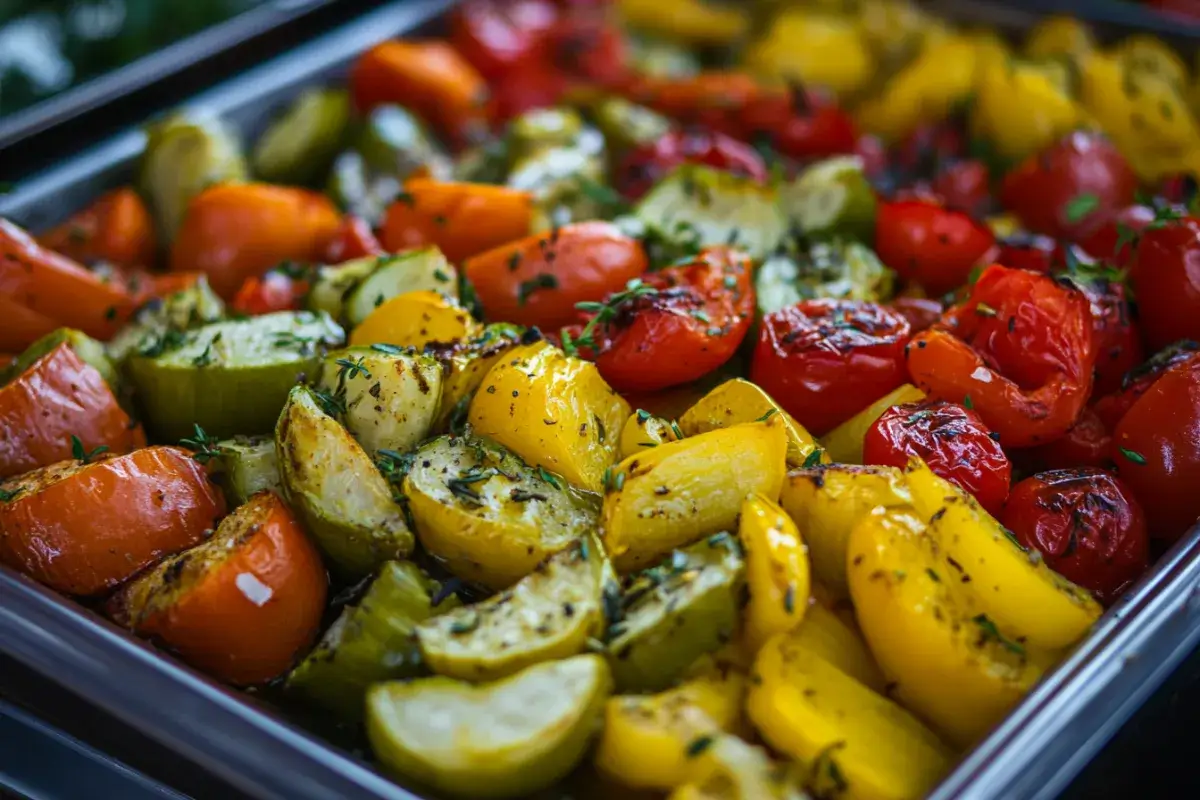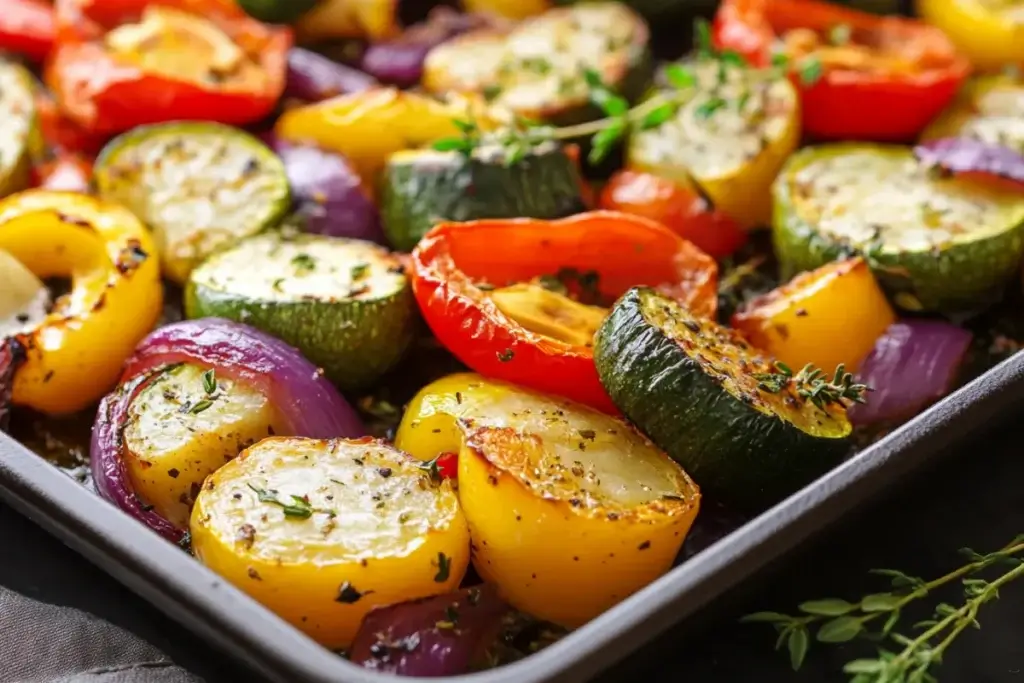Part 1: Introduction
What Is the Keto Diet?
The ketogenic diet (or keto diet) has been gaining serious popularity in recent years, and it’s no wonder why. This low-carb, high-fat eating plan promises to help people shed weight, improve their focus, and even provide sustained energy throughout the day. But one of the most important things to keep in mind when following a keto diet is the delicate balance of macronutrients—particularly the limitation on carbs.
While you might be all set with the idea of giving up bread and pasta, you may not realize that even some vegetables are off-limits on keto. That’s right—certain vegetables, especially those that are high in starch and natural sugars, can sneak in more carbs than you might expect, potentially kicking you out of ketosis.
Why Some Vegetables Are Off Limits on Keto
So, why would vegetables, which are generally considered a healthy part of any diet, be a problem on keto? It all comes down to carbohydrates. The keto diet works by drastically reducing the number of carbs you consume, typically limiting it to 20–50 grams per day. This forces your body to enter a state called ketosis, where it burns fat for energy instead of carbohydrates.
Vegetables that are high in starch or natural sugars can significantly increase your carb intake, making it harder to stay in ketosis. In short, even though these veggies are healthy in most cases, they’re too carb-heavy for the keto diet.
Part 2: Vegetables to Avoid on a Keto Diet
High-Carb Vegetables You Should Avoid
When following a keto diet, it’s essential to know which vegetables are high in carbs and should be avoided. The following vegetables can be quite tricky for anyone on a keto plan because they pack a higher carb punch than you might expect.
Starchy Vegetables
Starch is the real culprit here. Starchy vegetables are loaded with carbohydrates that your body converts into glucose, and that’s the opposite of what you want on a keto diet.
- Potatoes: Whether mashed, baked, or fried, potatoes are loaded with starch and carbs. A single medium potato contains about 37 grams of carbs, which is more than most people’s daily limit on keto.
- Sweet Potatoes: While sweet potatoes may have a lower glycemic index than regular potatoes, they’re still far too high in carbs for keto. One cup contains about 27 grams of carbohydrates.
- Corn: Corn is another starchy vegetable that’s a no-go on keto. With 41 grams of carbs per cup, it can easily throw you out of ketosis. To learn more about managing carbs on keto, you can check out Diet Doctor’s guide to keto vegetables.
- Peas: Green peas are relatively high in starch as well, with 21 grams of carbs per cup.
Root Vegetables
Root vegetables grow underground and often store carbohydrates in the form of sugar and starch to help fuel the plant’s growth. This makes them less ideal for a keto diet.
- Carrots: While carrots are nutritious, they contain natural sugars that can add up quickly. A single medium carrot has about 6 grams of carbs.
- Parsnips: These root vegetables might seem harmless, but they contain around 24 grams of carbs per cup.
- Beets: Beets are naturally high in sugar, which makes them unsuitable for keto. One cup contains about 13 grams of carbs.
- Turnips: Slightly lower in carbs than other root vegetables, turnips still have around 8 grams per cup, making them a vegetable to eat sparingly on keto.
Legumes
Legumes are generally considered a healthy addition to most diets due to their high protein and fiber content. However, they’re too high in carbs for keto.
- Beans (black beans, kidney beans, etc.): Beans are very high in carbohydrates. Just one cup of black beans contains around 41 grams of carbs.
- Lentils: While they’re packed with fiber and protein, lentils also carry about 40 grams of carbs per cup, making them unsuitable for a low-carb diet like keto.
Part 3: Vegetables Allowed in Moderation on Keto
Vegetables You Can Eat Sparingly
While some vegetables are outright no-go’s for keto, others can be eaten in moderation. These vegetables contain moderate amounts of carbs, so you can include them in your diet in smaller portions.
Onions and Garlic
Both onions and garlic are flavor powerhouses, often found in savory dishes. However, they contain natural sugars and should be eaten in moderation.
- Onions: A medium onion contains about 12 grams of carbs, so it’s best to use them sparingly in your meals.
- Garlic: While a single clove of garlic only has around 1 gram of carbs, it’s easy to overdo it, especially when using multiple cloves in a recipe. Be mindful of your portions when cooking with garlic.
Squash and Pumpkin
Squash and pumpkin are relatively higher in carbs but can be eaten in small portions.
- Squash: A cup of cooked squash has about 18 grams of carbs.
- Pumpkin: One cup of canned pumpkin contains around 12 grams of carbs. You can still enjoy pumpkin-based treats in moderation. For example, try this Fluffy Cream Cheese Dessert for a keto-friendly pumpkin dessert option.
Part 4: Low-Carb Vegetables Suitable for Keto
Best Vegetables to Eat on Keto
Now that we’ve covered the vegetables to avoid, let’s focus on the best veggies you can enjoy freely on the keto diet. These low-carb options are not only delicious but also packed with nutrients.
Leafy Greens
Leafy greens are perfect for keto due to their low carb count and high nutrient density.
- Spinach: A powerhouse of nutrition, spinach has only about 1 gram of carbs per cup (raw).
- Kale: Kale is another superfood that contains just 5 grams of carbs per cup (cooked).
- Lettuce: With less than 1 gram of carbs per cup, lettuce is ideal for low-carb salads.
Cruciferous Vegetables
Cruciferous vegetables are low in carbs, high in fiber, and great for keeping you full longer on keto.
- Broccoli: One cup of broccoli contains just 4 grams of carbs, making it a keto favorite.
- Cauliflower: With only 3 grams of carbs per cup, cauliflower is a versatile keto ingredient often used as a low-carb rice or pizza crust substitute.
- Brussels Sprouts: With around 8 grams of carbs per cup, Brussels sprouts can be enjoyed in moderation.
Avocados
Avocados are a staple on keto, offering heart-healthy fats and minimal carbs.
- Avocados: A single avocado contains just 2 grams of net carbs, making it an excellent addition to any keto meal. You can also explore different ways to include avocados in your diet, like in this Keto Crockpot Recipe.
Part 5: Recipes Using Keto-Friendly Vegetables
Keto Vegetable Recipes
Looking for some tasty ways to enjoy keto-friendly vegetables? Here are a few simple and delicious recipes that are perfect for a keto diet.
Zucchini Noodles with Garlic and Olive Oil
Ingredients:
- Zucchini (spiralized)
- Garlic
- Olive oil
- Salt
- Pepper
Instructions:
- Spiralize the zucchini to create noodles.
- Heat olive oil in a pan, and sauté garlic until fragrant.
- Add the zucchini noodles and cook for about 2-3 minutes.
- Season with salt and pepper.
Cauliflower Rice Stir Fry
Ingredients:
- Cauliflower (riced)
- Soy sauce
- Eggs
- Green onions
Instructions:
- Heat oil in a pan and scramble the eggs.
- Add cauliflower rice and soy sauce, stirring well.
- Toss in green onions for extra flavor.
Broccoli and Cheddar Soup
Ingredients:
- Broccoli
- Cheddar cheese
- Heavy cream
- Garlic
- Salt and pepper
Instructions:
- Boil broccoli until soft.
- Blend it into a smooth consistency.
- Add cream and cheddar cheese, stirring until creamy.
Part 6: Nutritional Breakdown of Common Keto Vegetables
Understanding Net Carbs in Vegetables
On keto, understanding the difference between total carbs and net carbs is crucial. Net carbs are the amount of carbohydrates that actually impact your blood sugar. To calculate net carbs, you subtract the fiber from the total carbs.
Here’s a quick look at the net carb content of some common keto vegetables:
| Vegetable | Net Carbs (per cup) |
|---|---|
| Spinach | 1 gram |
| Cauliflower | 3 grams |
| Avocado | 2 grams |
| Broccoli | 4 grams |
| Zucchini | 3 grams |
For more information on which vegetables to eat or avoid on keto, you can check out Healthline’s list of keto vegetables.
Part 7: Frequently Asked Questions About Keto Vegetables
Can you eat carrots on a keto diet?
Carrots can be eaten in moderation, but they’re relatively high in carbs. One medium carrot contains around 6 grams of carbs, so it’s best to consume them sparingly.
Why are potatoes not allowed on keto?
Potatoes are full of starch, which breaks down into sugars in your body. With around 37 grams of carbs per medium potato, they can quickly kick you out of ketosis.
Are tomatoes keto-friendly?
Yes, tomatoes can be eaten in moderation. A medium tomato contains about 5 grams of carbs, so be careful not to overdo it.
Can you eat onions on keto?
Onions contain natural sugars and should be used sparingly. A medium onion has about 12 grams of carbs, so it’s best to limit your intake.
What are the best vegetables for keto?
The best vegetables for keto are leafy greens like spinach and kale, cruciferous vegetables like broccoli and cauliflower, and avocados for healthy fats.
Part 8: Conclusion
Final Thoughts on Vegetables Off Limits on Keto
While vegetables are typically considered healthy, some are too high in carbs for a keto diet. Avoid starchy and sugary vegetables like potatoes, carrots, and beets, while focusing on low-carb options like spinach, cauliflower, and avocado. Keep an eye on your net carbs and enjoy your keto-friendly veggies in moderation.
For more recipes, tips, and guides on keto-friendly foods, don’t forget to visit Verywell Health’s comprehensive guide on keto vegetables.

